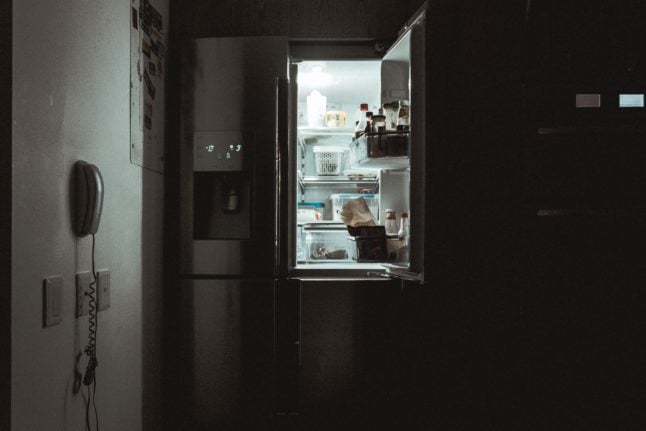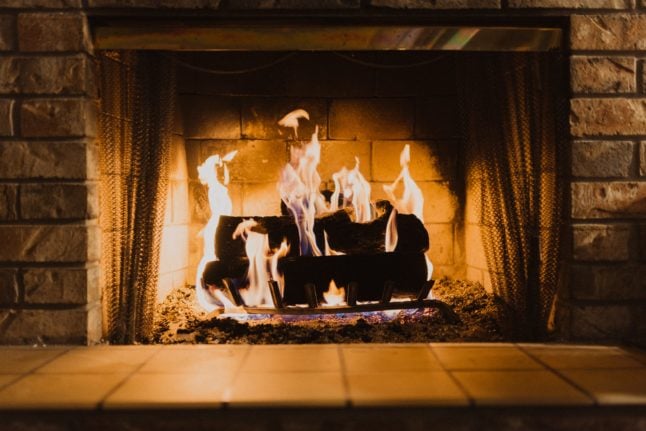How to keep energy bills down in Austria
It’s no secret that the cost of living is high and gets even more expensive when we head into a cold Austrian winter.
But it’s not all gloomy and there are some easy ways to save money and energy in Austria.
Here’s how.
FOR MEMBERS: Reader question: What should I do if I haven’t received the 500 euro payment from the Austrian federal government?
Reduce the heating temperature
Turning down the heating can have a big impact on energy bills. But in a cold country like Austria, it can also affect people’s well-being.
Therefore, many decide to compromise by lowering the central heating temperature by just a degree or two.
Harald Proidl, Head of the Department of Green Energy and Energy Efficiency at E-Control, said Viennese newspaper: “Depending on the building standard, just one degree less room temperature results in savings of five to six percent.”
According to Proidl, 21 degrees is the best energy-saving temperature for heating a house or apartment. For most people, however, 23 degrees is the ideal setting for health and well-being.
Check electrical appliances
Households are full of electronic devices that eat up energy – sometimes unnecessarily.
Refrigerators are one of the main culprits, and big savings can be made by raising the temperature slightly without compromising food safety.
That Recommended temperature for a refrigerator is between zero and five degrees, with four degrees often referred to as the magic number.
READ MORE: 29 Ways to Save Money (But Still Have Fun) in Austria
Experts say too Defrosting the freezer regularly helps to save energy. When the ice in a freezer is more than 3 cm thick, it’s time to defrost. The ideal temperature for a freezer is -18 degrees.
In addition, switching off devices such as PlayStation, Xbox or speaker system at the outlet can save significant energy and reduce electricity bills.
If possible, unplug these devices when not in use, or invest in a switchable power strip.

Use the dishwasher and washing machine less
Like fridges and freezers, dishwashers and washing machines are indispensable household items, but they also consume a lot of energy.
E-Control expert Proidl: “If you only run the washing machine or dishwasher twice a week instead of four, this reduces electricity consumption by two kilowatt hours.”
Just by being more considerate with these devices, a difference can be made.
Switch to energy-saving showerheads
Many energy experts say savings can be made by switching to a more energy efficient showerhead (also called an eco showerhead).
These devices can save about 20 to 30 percent water per shower, resulting in large energy savings on hot water. The Austrian federal government also recommends lowering the water temperature when showering to further save energy and money.
Energy-efficient shower heads can easily be picked up at hardware stores like Obi, Bauhaus, and Lagerhaus.
ALSO READ: When does Austria pay the €500 anti-inflation payment and how do I get it?
Insulate house/apartment
Investing in insulation (also known as thermal building renovation in Austria) is a great way to save energy and still feel warm at home.
According to the Austrian federal government’s website, a well-insulated house can reduce energy requirements by 40 percent. As a result, funds are available to individuals and businesses to add value to their properties through insulation.
The state scheme can cover up to 30 percent of the cost of work such as renovating or replacing windows and exterior doors, and insulating exterior walls or ceilings.
The application deadline for the 650 million euro program is December 31, 2022.

Use a fireplace instead of an electric heater (if possible)
Many people in Austria have been asking whether using electric heating instead of gas radiators can save money on energy bills this winter, The Local reports.
However, in a recent report by the ORF, electric heaters were attested to have a “very poor overall efficiency”. This is because electricity is produced in power plants, which cause emissions, and electric heaters do not retain their heat for long after they have been switched off.
Instead, a stove is recommended as a cheaper alternative to electric or gas heating.
READ MORE: Milk, cheese and eggs up 19.5 percent: How food prices are rising in Austria
What else does the government say?
Despite fears of a possible gas shortage this winter, the Austrian government has so far avoided urging the population to save energy.
Instead, the government recently launched the “Mission 11” campaign to help the country’s residents reduce energy consumption by 11 percent. The aim is to introduce “small behavioral changes” in the midst of the global energy crisis.
As part of the initiative, the government announced several tips to keep homes warmer, save energy and improve efficiency.
Key advice includes reducing indoor heating by two degrees, reducing showers to four minutes, turning off electrical appliances on the grid and switching to public transport.
You can read The Local’s full report on Mission 11 here.
Find out more about saving energy in Austria
Make an appointment with an energy consultant at Advice Center Energy in Vienna.
Read energy-saving resources and guides from the Austrian federal government.